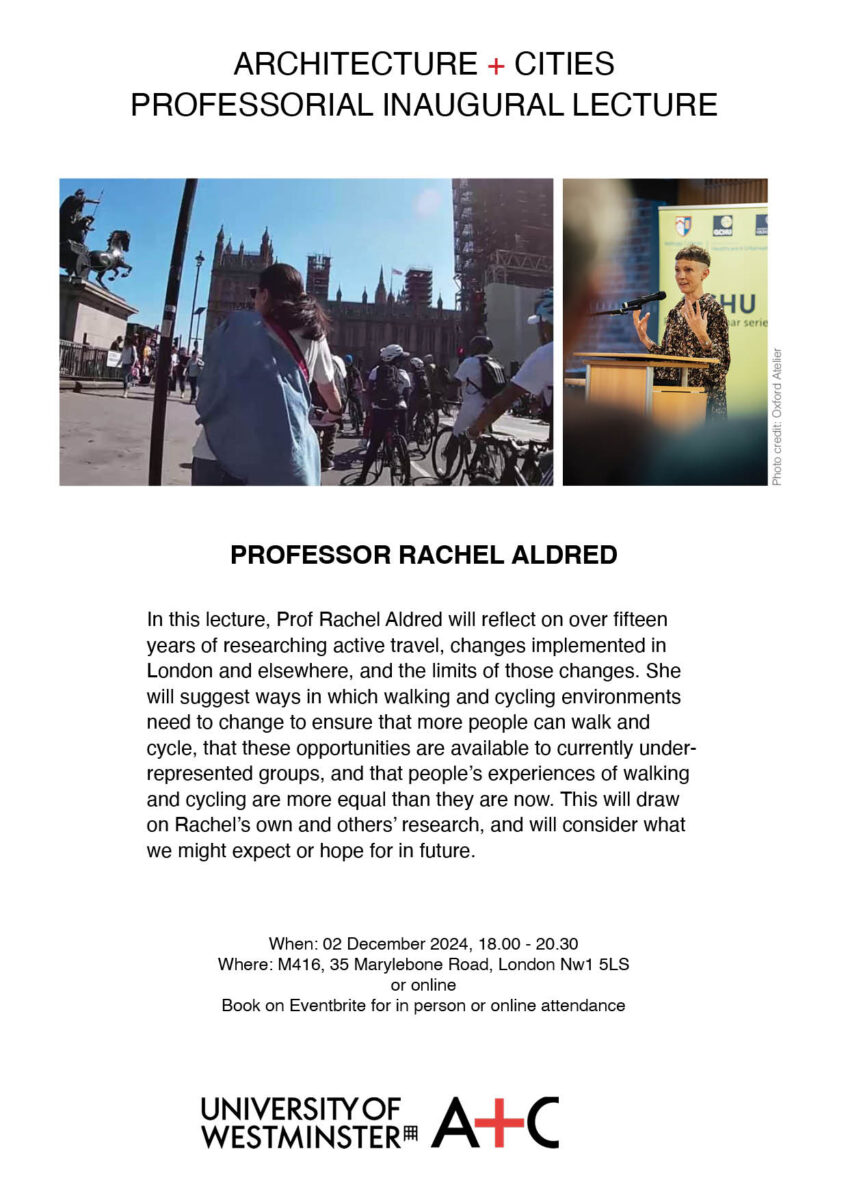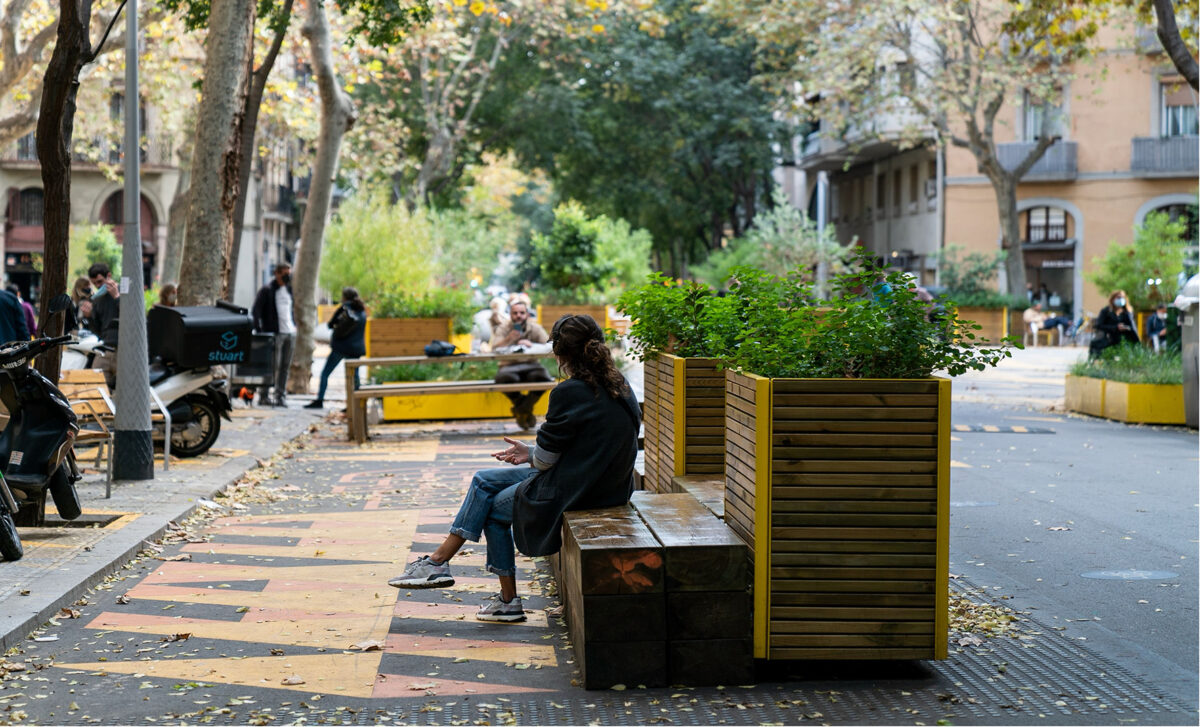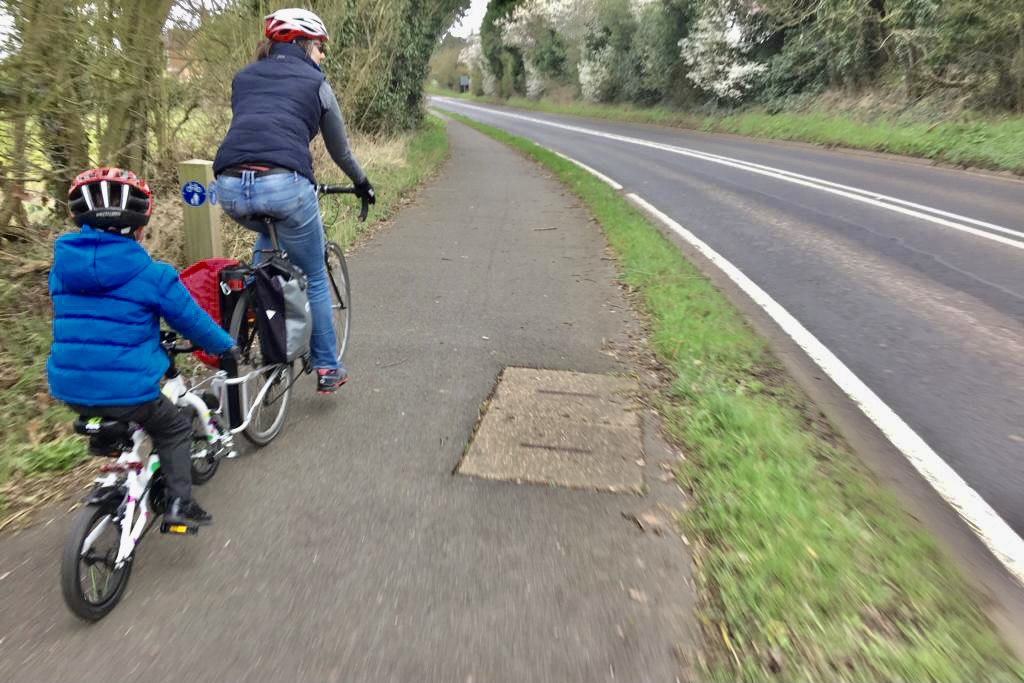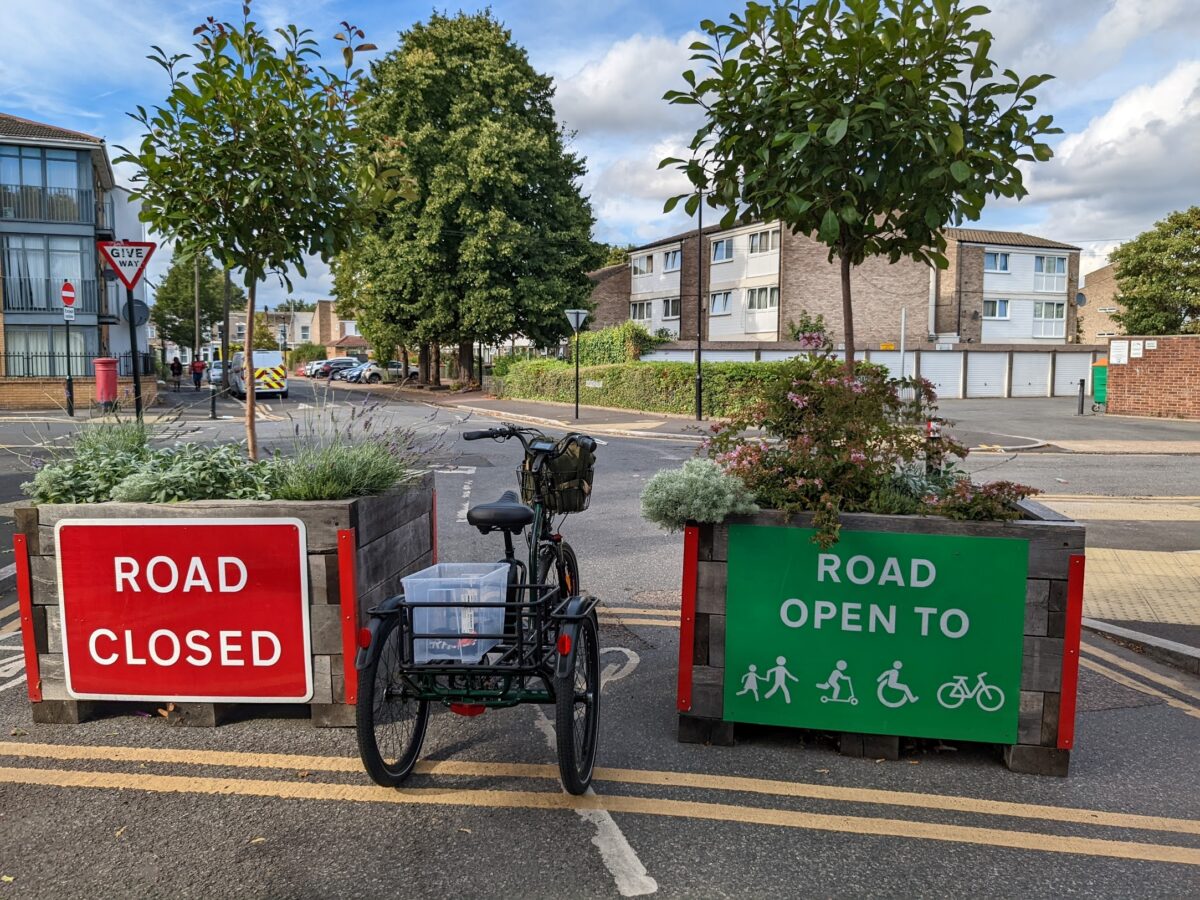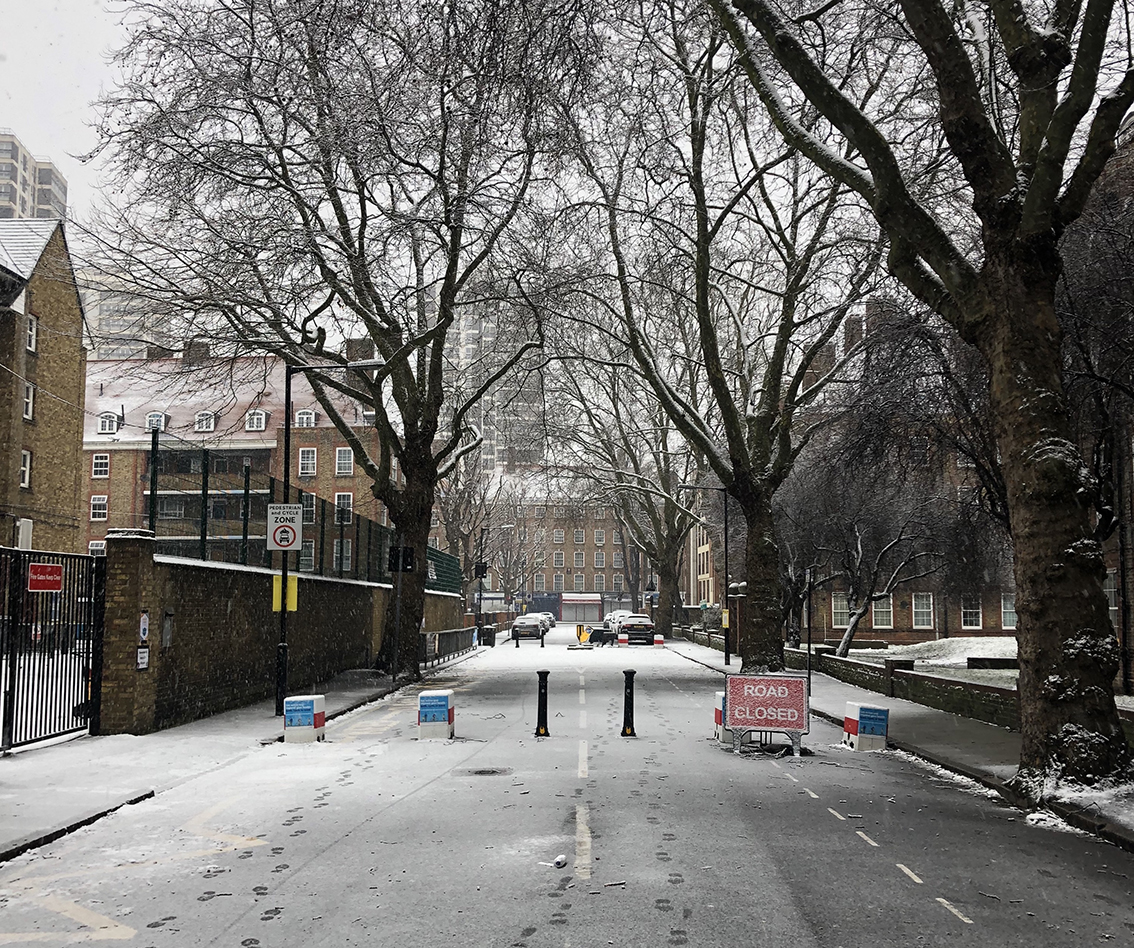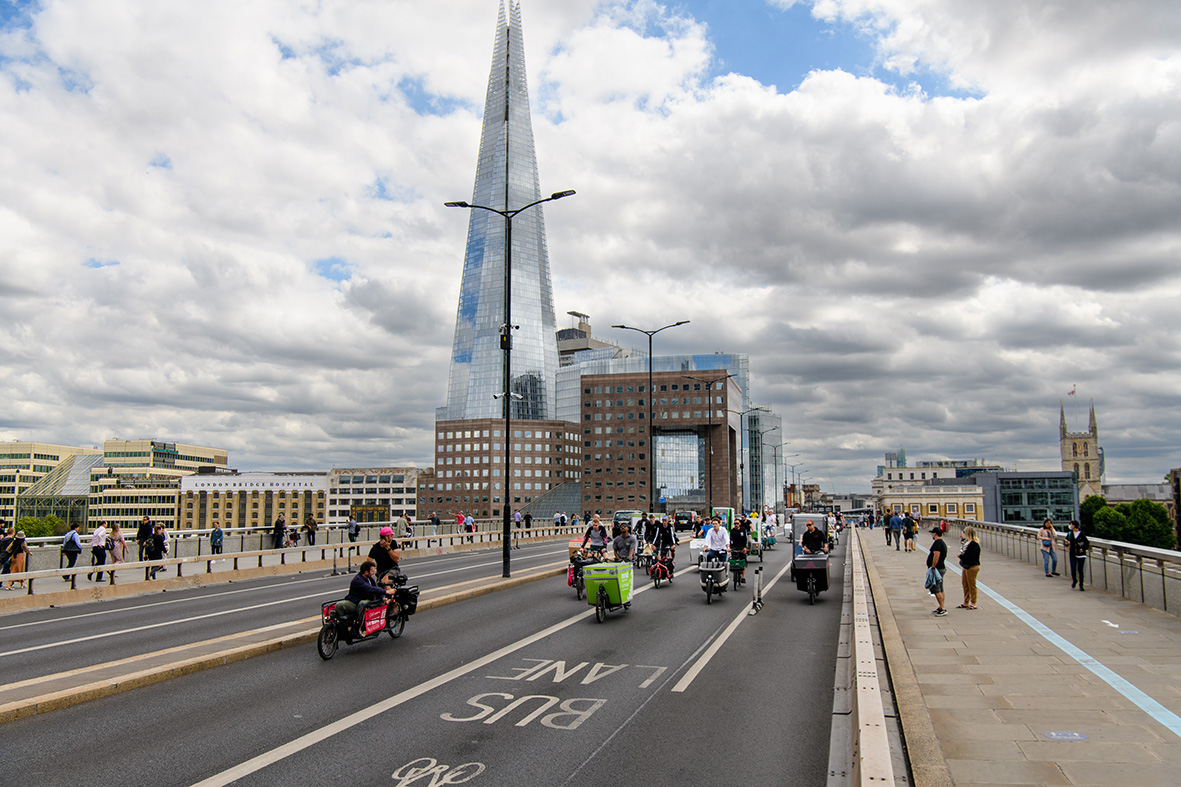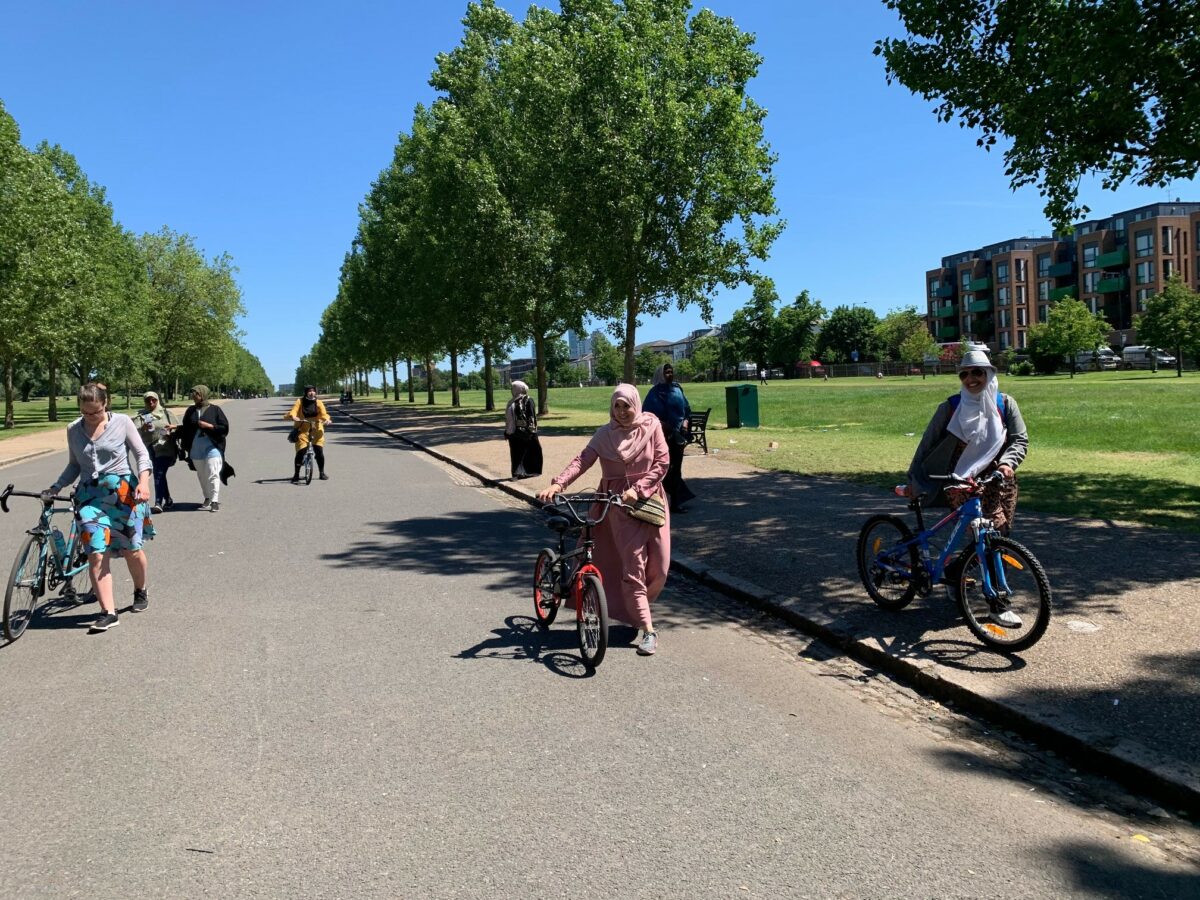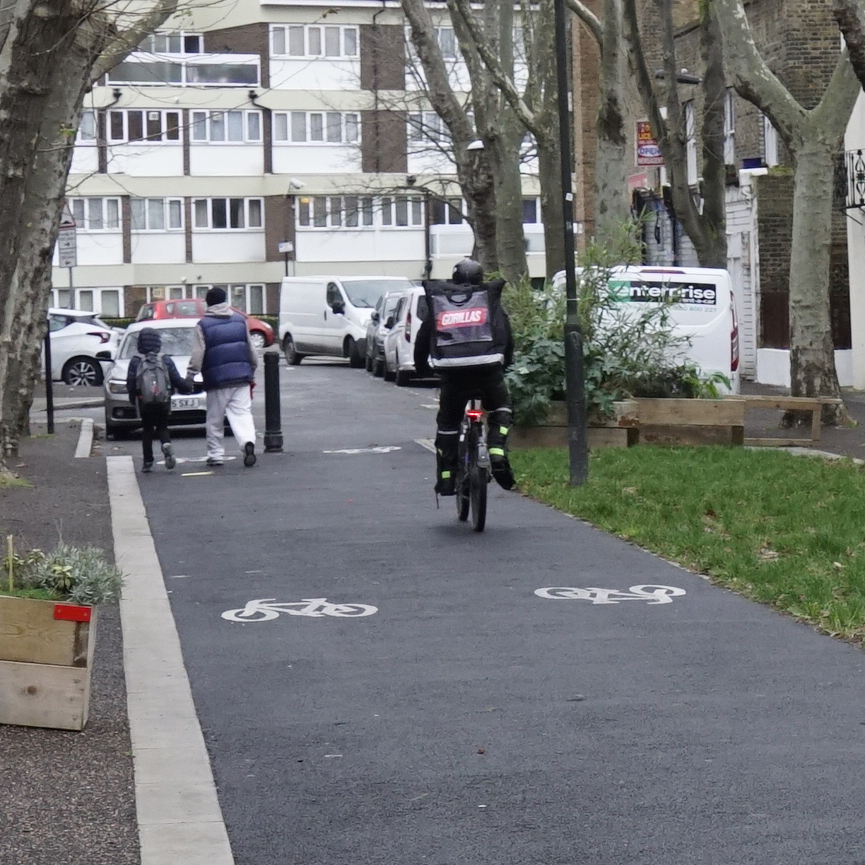Active Travel Academy (ATA)
The ATA brings together a broad spectrum of expertise to lead research, teaching and knowledge exchange on walking, wheeling, cycling and other active modes, use of ‘micromobilities,’ and reduction in car use. It is now largely funded by external grants including from the National Institute for Health and Care Research, Department for Transport, and Transport for London. For further information go here: https://blog.westminster.ac.uk/ata/
In this lecture, Prof Rachel Aldred reflected on over fifteen years of researching active travel, changes implemented in London and elsewhere, and the limits of those changes. Rachel suggested ways in which walking and cycling environments need to change to ensure that more people can walk and cycle, that these opportunities are available to currently under-represented groups, and that people’s experiences of walking and cycling are more equal than they are now. This drew on Rachel’s own and other research, and considered what we might expect or hope for in future.
In this seminar, visiting researcher at the ATA, Serena Mombelli presented her work on the political discourse surrounding superblocks and low-traffic neighbourhoods as models for sustainable urban change in Barcelona between 2016 and 2024. Media coverage plays a key role in shaping competing narratives around these interventions, influencing public support or opposition – particularly in politically polarised contexts such as local elections. Despite the growing importance of such interventions, systematic research on their media representation remains limited and largely qualitative, a gap her study aimed to address.
As a mother who doesn’t drive and has cycled with my son (now aged 12) in various forms since he was seven weeks old, my own experiences both positive and negative had left me intrigued to find out how other mothers were traversing the challenge of cycling with young children. Were my experiences typical of others cycling in the UK? Did other mothers have to plan where and when they can ride with their children due to lack of safe cycle infrastructure and had they encountered judgement from others for their choice of transport. A mixed method approach was pursued including focus groups, surveys and 30 semi-structured interviews.
Low Traffic Neighbourhoods (LTNs), have been controversial and divisive as they challenge the established car-centric social order. In this presentation, we use Membership Category Analysis (MCA) to analyse differences in how residents who are for, against or unsure about the scheme frame what the LTN is and does, contributing to reshape or disrupt automobility and assign new meanings or moral values to being in public space. We focus on the ways in which two opposing sets of characters, ‘the good driver vs. the irresponsible cyclist’ and ‘the vulnerable cyclist vs. the negligent driver’, are mobilised to frame stories about the scheme and create narratives about what the LTN does.
Since 2016 local authorities in London have pursued a novel policy of closing the streets in front of schools to cars during pick up and drop off times. These ‘School Street’ schemes were initially relatively marginal but since the beginning of the Covid-19 pandemic have increased dramatically, now covering nearly a third of state-funded primary schools in the city. This seminar reports on the work conducted as part of a doctoral research project at the Active Travel Academy focusing on these schemes.
Cargo bikes have been gaining popularity as greener, healthier, and more efficient replacements for delivery vans in cities. A growing body of evidence demonstrates their benefits in reducing delivery times, traffic congestion, carbon emissions, air pollution and injury risk to other road users, compared to motorised vehicles. As this new cargo bike logistics sector rapidly expands and transforms, there is a need for careful consideration of workers’ experiences and overall wellbeing. This research
gives new unique insights on the experiences of cargo bike delivery workers in London and the improvements they would like to see in the sector.
Luz Navarro has been awarded a £4,822 grant from the UKRI Participatory Research Fund, via an internal call of the UoW. Expanding on previous participatory research funded by the QHT, the project will explore the experiences of BAME women cycling within different types of urban environments and cycling infrastructures. The project is co-organised with JoyRiders – a BAME women cycling organisation– and will articulate through a series of participatory design-research workshops in four different locations in London. The participatory nature of the research places women as experts of their environments and their own needs and aspirations regarding cycling
Congratulations to our Active Travel Academy colleagues who have been awarded a new £70,000 grant by Impact on Urban Health for the project Cargo bike operators: employment practices. The project will use interviews and focus groups with riders and operators to identify ways to maximise health and wellbeing for sector workers whilst supporting upscaling of cargo bikes operators. The study’s outputs will support local and national stakeholders in ensuring that increased cargo bike deliveries in the UK create good, green jobs that provide job security, a living wage and a safe and inclusive environment for workers. The study will involve partners from Sustrans and MP Smarter Travel.
